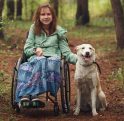High Temperatures in Georgia Raise Health Concerns
Posted June 15, 2022 by Michael Hokanson
Stay Cool, Stay Hydrated, Stay Informed
With temperatures expected to be in the high 90’s throughout the state for the next several days, and at times feeling like more than 100 degrees with the humidity, the Georgia Department of Public Health (DPH) is urging Georgians to avoid prolonged exposure to the heat and sun and to limit strenuous outdoor activity to prevent heat related illnesses.
To protect your health when temperatures are extremely high, remember to stay cool, stay hydrated and stay informed.
STAY COOL
Wear lightweight, light-colored, loose-fitting clothing.
Stay in an air-conditioned place. If your home does not have air conditioning, go to the shopping mall or public library or a friend or relative’s home – even a few hours spent in air conditioning can help your body stay cooler when you go back into the heat.
Electric fans may provide comfort, but when the temperature is in the high 90s, fans will not prevent heat-related illness. Taking a cool shower or bath is a much better way to cool off.
NEVER leave infants, children, adults, or pets in a parked car, even if the windows are cracked open. If you see anyone locked in a hot vehicle, call 911.
Avoid using heat-generating appliances like your stove and oven. Avoid hot and heavy meals which will only add heat to your body.
Limit your outdoor activity to morning and evening hours. Cut down on exercise. If you must exercise, take short breaks, and stay hydrated.
When you are outdoors, protect yourself from the sun with a wide-brimmed hat, sunglasses, and sunscreen with SPF 15 or higher (the most effective products say “broad spectrum” or “UVA/UVB protection” on their labels).
STAY HYDRATED
Drink plenty of water even before you are thirsty. Don’t wait until you are already thirsty. Avoid sugary or alcoholic beverages which can cause you to lose even more body fluid. Beware that very cold drinks can cause stomach cramps. As you lose salt and minerals from your body while sweating, replace them. A sports drink will help with this.
STAY INFORMED
Prepare for extreme heat ahead of time by keeping an eye on local weather forecasts.
Use the buddy system to check on each other at least twice a day while working in extreme heat. Heat-related illness can cause confusion or loss of consciousness.
Keep a close eye on those at greater risk for heat-related illness:
- Infants and young children
- People 65 years of age or older
- People who are overweight
- People who overexert during work or exercise
- People who are physically ill, especially with heart disease or high blood pressure, or who take certain medications, such as for depression, insomnia, or poor circulation
If you are at greater risk for heat-related illness, have a friend or relative call to check on you twice a day during a heat wave. If you know someone in this group, check on them at least twice a day.
Learn the signs and symptoms of heat-related illnesses and how to treat them.
And don’t forget your pets! Any time your pet is outside, make sure they have protection from heat and sun, and that they have plenty of fresh, cold water. In heat waves, add ice to water when possible. Tree shade and tarps are ideal because they don’t obstruct air flow. A doghouse does not provide relief from heat—in fact, it makes it worse.
For more information about extreme heat and precautions to take to prevent heat-related illnesses, log on to https://www.cdc.gov/disasters/extremeheat/index.html.


 Contact Us
Contact Us Locations
Locations Job Openings at North Central Health District
Job Openings at North Central Health District Internships
Internships Board of Health
Board of Health Cost and Insurance
Cost and Insurance Privacy Policy
Privacy Policy Teens & Adults
Teens & Adults For Children
For Children Other Programs
Other Programs County Environmental Health Offices
County Environmental Health Offices Chemical Hazards
Chemical Hazards Tourist Accommodations
Tourist Accommodations Food Service
Food Service Rabies Control
Rabies Control Lead Poisoning Prevention
Lead Poisoning Prevention Body Art
Body Art Land Use
Land Use Swimming Pool Program
Swimming Pool Program Water Testing for Private Wells
Water Testing for Private Wells Environmental Health Complaints
Environmental Health Complaints Georgia Food Recall Alerts
Georgia Food Recall Alerts Personal & Family Preparedness
Personal & Family Preparedness Emergency Preparedness for Functional & Access Needs
Emergency Preparedness for Functional & Access Needs Severe Weather Preparedness
Severe Weather Preparedness Emergency Preparedness Training
Emergency Preparedness Training Medical Reserve Corps
Medical Reserve Corps Regional Healthcare Coalitions
Regional Healthcare Coalitions Strategic National Stockpile/Medical Countermeasures
Strategic National Stockpile/Medical Countermeasures